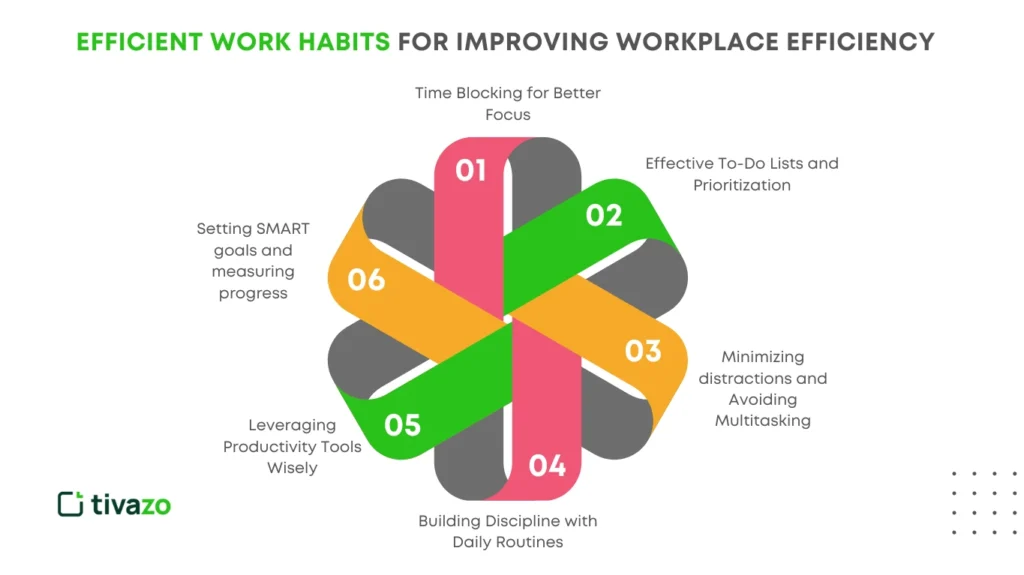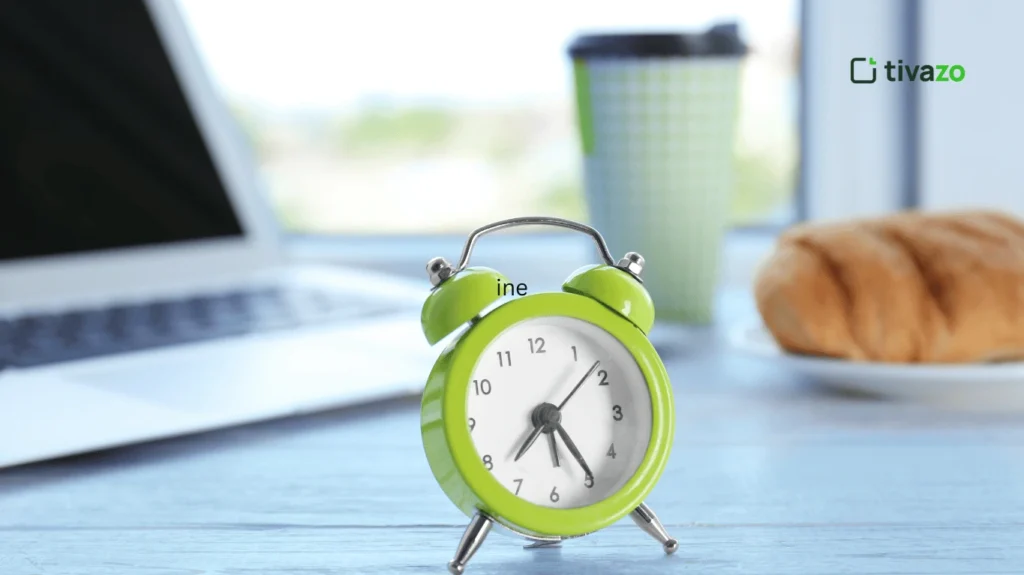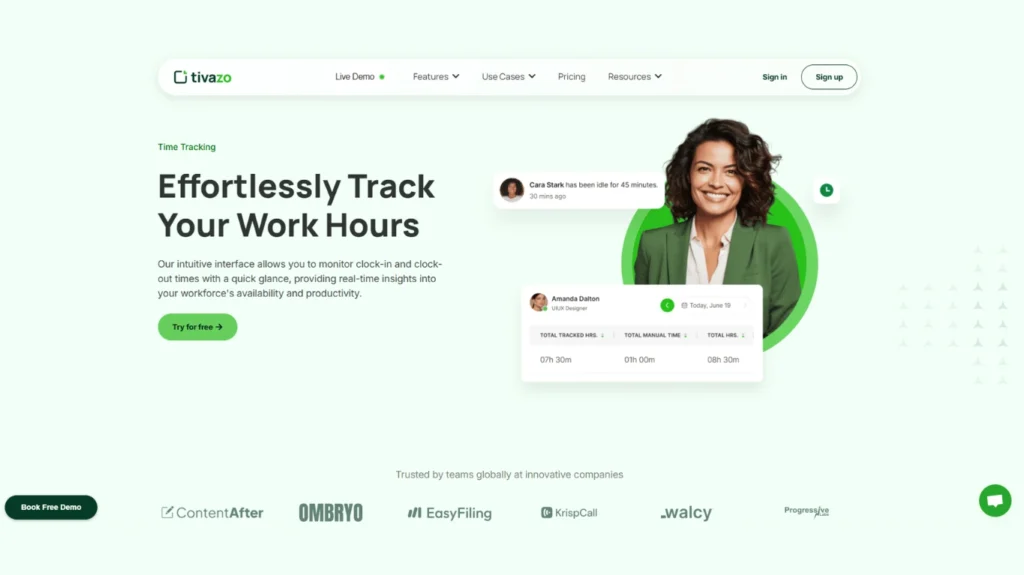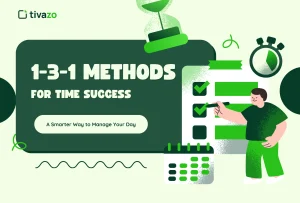Achieving efficient work habits is always important to anyone who wants to improve productivity and get rid of endless distractions. And no matter whether you have a heavy workload or a variety of projects to control, the right habits would help you change the way you set priorities, organize time at the workplace, and concentrate during the working day.
Efficient work habits should not just be mere routines because they assist in preventing workplace distractions, better management of tasks, and cultivating professional discipline. When you manage your time efficiently, by means of to-do lists, time management, and goal setting, you develop a system that enhances the levels of consistency and workplace productivity. These are not only tips that can transform the productivity of employees, but they also build a healthier work-life by eliminating burnout.
This article will uncover some of the strongest, practical measures that you can use for improving workplace efficiency through daily working patterns, proper task scheduling, and engaged self-care methods that can guarantee that you do more and still remain healthy.
Key Highlights:
- Top 7 Efficient Work Habits for Improving Workplace Efficiency
- Expert Insights on Building Efficient Work Habits
- How Tivazo Helps to Build Efficient Work Habits?
- Real-World Example
What are efficient work habits?
Efficient work habits are quality and repeated practices and actions that benefit you in achieving maximum output, skills to focus at work hence organize time appropriately. These practices eliminate distractions at the workplace, help in prioritization of activities, and introduce a systematic method of daily operations in employment.
More precisely, efficient work habits are based on tactics such as structuring the working day, dividing large assignments into small tasks, and preventing mentally energy-consuming errors of multitasking. These also involve developing professional disciplines by having daily routines and being smart at utilizing the productivity tools in the workplace. These habits will help you increase efficiency in the workplace, level the work performance of an individual, and enable one to execute tasks efficiently and without appropriate levels of stress and distractions.
Top 7 Efficient Work Habits for Improving Workplace Efficiency
It is very important to adopt efficient work habits in order to boost productivity and simplify day-to-day work activities. These practices will keep you organized, minimize distractions, and land the best out of your working hours.

1. Time Blocking for Better Focus
Managing time at work does not mean that you add duties to your calendar. It is a matter of making sure that those activities are during your most productive phases and energy levels. Time blocking provides you with the opportunity to allocate certain time to your focused activities, meetings, and even breaks. When applied properly, this practice creates a shell around your working day that enhances concentration and resists distractions.
Efficient work habits, such as time blocking, reduce the choice overload that is associated with having to make endless decisions on what to do next. Arranging your day the night before or the very first thing in the morning allows approach the workplace with clear and definite intentions. It results in a more uniform work performance and a greater sense of achievement at the end of the working day.
To make it easier to reap the benefits of time blocking, combine it with prioritization techniques such as the Eisenhower Matrix. Do the most mentally challenging tasks when you are in the best position to concentrate. Scheduling deep work blocks and an admin block in the daily schedule, you form practical and efficient work habits.
2. Effective To-Do Lists and Prioritization
One of the oldest product suggestions for employees is to make effective to-do lists, and it is one of the most effective work habits. However, not every single list is equal. A prioritized list in which tasks are not performed in any sequential order may result in an overload and extreme indecision. That is why to-do lists would do good in cooperation with smart prioritization frameworks as a way of improving workplace efficiency.
Tools such as the ABCDE approach or the MoSCoW framework allow you to realize what really has to be looked into. Case in point, you should first complete the tasks that are tagged as A or Must Have, whereas the other tasks may be postponed or even assigned to other people. Indeed suggests dividing large projects into small pieces: it is a more effective way to handle work with sufficient daily work progress realization.
This is achieved by consistency in prioritizing tasks, which will ease the management of tasks within the teams and the roles. It makes employees concentrate on their workplace and lessen stress or pressure due to lots of responsibilities. Not only will a to-do list help you to stay on point, but it also helps you to make the best possible use of your energy since every to-do should be about things that matter.
3. Minimizing distractions and Avoiding Multitasking
The fact that multitasking is a productive activity is one of the most deceptive cornerstones of the contemporary workplace. As a matter of fact, it contributes to additional mistakes, low-quality production, and reduced speed. The University of California, Irvine claims that the recovery period after an interruption is more than 23 minutes. This implies that when distractions are common, it completely inflates the productivity of the workplace.
Effective work habits imply the development of an environment where distractions are limited. These are muffled, unnecessary alerts, place limits on communication, and utilise applications to ensure that you remain focused in the workplace. You can use apps such as Freedom or Cold Turkey to block distracting sites, or employ such methods and tricks as working with the Pomodoro technique that help to organize your work in small but manageable segments when nothing is distracting you.
Avoiding multitasking mistakes doesn’t mean doing less; it means doing things with more intention. By focusing on one task at a time, you ensure quality and reduce the mental load associated with constant task-switching. This not only helps in improving workplace efficiency but also supports long-term productivity and mental clarity.
4. Building Discipline with Daily Routines
Good work habits start with consistency. All efficient work habits are rooted in professional discipline. By establishing work habits that are consistent and facilitate your objectives day-to-day, you take most of the disorder out of your work life. Atlassian asserts that being reliable and creating respect at work can be done through being there and keeping your promises.

The first step is to organize your mornings. Write down expectations of the day, review your aims, and priorities of the most critical activities. This brings an initial lesson of discipline and allows you to get the momentum in your favor. Such routines come to form rituals, which, over time, lead to consistency in the performance of work and increase confidence.
Monitoring your performance and reviewing on a regular basis are essential, too. To lock in the habits, you can build some review time in a check-in every week, or where you feel you need to progress. Intentional construction of a comprehensible and supportive routine helps the long-term development and minimizes the chance of burnout or decision fatigue.
5. Leveraging Productivity Tools Wisely
Technology is good as long as you use it. Most workers do have access to productivity tools available in the workplace, but do not use them well. There is software such as Asana, Trello, Paymo, or others, which allows us to conduct project management, assign tasks, and manage time in the workplace. They make work less stressful and increase teamwork.
There is no magic ascertained by Fellow, but systematically incorporating these tools in your workflow process. Never think of merely monitoring what is going on, but also automate whenever possible. Take advantage of using templates in repetitive tasks, create reminders of upcoming deadlines, and centralize messages on Slack or Loom. With their effective use, these tools will help not only to save time but also to avoid confusion.
Efficient work habits involve knowing when to leverage technology and when to simplify. Avoid overloading your tool stack. Choose a few that meet your needs and master them. A streamlined workflow supported by the right tools ensures better organization, fewer errors, and improved team efficiency.
6. Setting SMART goals and measuring progress
Ambition is not the only issue about setting goals, but direction. SMART goals (Specific, Measurable, Achievable, Relevant, and Time-bound) are organizing your aspirations and making sure that all your efforts converge to the results. Efficient work habits without a sense of direction can easily turn a mess.
In setting SMART goals, you set points of reference to progress. Indeed claimed that teams with measurable goals became more motivated and yielded better results. It allows employees to visualize success, and it motivates them towards working at a steady pace. This goes hand in hand with the development of professional discipline and efficiency at the workplace.
Measure your weekly progress with the help of such tools as Google Sheets, KPI dashboards, or OKR platforms. Measuring results not only makes you accountable but also enables you to reflect and improve. In the long run, such a habit influences a culture of excellence and leads to perpetual performance.
7. Prioritizing Self-Care for Sustained Focus
Another efficient work habits that has been underrated is to take care of yourself. Most professionals will concentrate on output without caring about the physical and psychological effects it has. However, sustainable productivity is all about being balanced. Harvard Business Review states that organizations lose more than 300 billion each year due to their productivity loss.
Employees should be well-rested, sane, and stable emotionally because of the fact that in a workplace, contribution is made by efficiency. Self-care in the course of work, i.e., short breaks, balanced meals, hydration, and preservation of sleep, should become common elements of your day-to-day working schedule. All these donors might appear minor, but they make a huge difference in how focused you become on your ability to organize and ensure the efficient management of workload.
Self-care becomes a part of your job routine and thus contributes to the regularity of work. It makes you stronger when it comes to coping with pressure, overcoming difficulties, and being very productive. Your own well-being is not a luxury only: it is becoming a necessity as work requires more and more effort to perform.
The application of these 7 best effective work habits will make your working life change and improve workplace efficiency in your office. Even minor adjustments in your daily activities will bring essential results in the depth of concentration and the general performance.
Expert Insights on Building Efficient Work Habits
As every expert rightly says, being efficient in work is not doing more, but it is doing what counts with a clear vision and goals. As James Clear, the author of Atomic Habits, says, You do not live up to the levels of your goals. “You collapse to the state of your systems.” Efficient work habits are those routines, daily habits, systems, and behavior patterns that are able to bring consistency and long-term outcomes.
Cal Newport, Deep Work author, points out the usefulness of a non-distracted mind in a distracted world. He says, the certainty of what is important gives the certainty of the unimportant. This is why we must not make the errors of multitasking and focus on the priorities in a planned manner, which are the major characteristics of effective professionals.
Laura Vanderkam, an expert on time management, also mentions that Time is a choice. Unless we decide on how to spend it, then others will do it.” The wisdom of time blocking, making plans, and applying the right workplace productivity software to manage your time and energy level is echoed in her sense.
How Tivazo Helps to Build Efficient Work Habits?
Tivazo helps individuals and teams in their work to form efficient work habits by providing instant time management at work and with one-click tracking. Employees may remain sharp at work as they may not be disturbed and given time to enter manually with the convenient dashboard and automatic time logging. Through planning the idle time, emphasizing active time, and structuring daily work routines, Tivazo promotes better daily working habits and develops professional discipline. It also removes the element of guesswork, as well as allows workers to organize the course of action without distractions, and contributes to uniformity of work performance.

This system can do more than track, as it can provide more robust functionality, such as monitoring activities, having project-level knowledge, as well as customizable productivity reports. Such tools are used to support people in prioritize tasks effectively, efficiently coping with the workload, and learning to create mistakes when multitasking, which is a central element of good work habits. Yeah, regardless of whether you work in a remote team or at a conventional office environment, Tivazo will enable productivity tools in the workplace that will work according to what you want, boost effectiveness at the workplace, and eventually bring about greater efficiencies all around.
Real-World Example
Sarah is a remote marketing lead of a mid-sized tech company who could hardly resist the urge to multitask and regularly missed deadlines. Following the adoption of time blocking with the help of the productivity tracking tools offered by Tivazo, she was able to improve workplace efficiency around the concentrated, uninterrupted blocks. Replacing task-switching with task-focusing with minimal distractions in a working place, Sarah managed to decrease the percentage of switching among her tasks within one month by 40%. This change not only enhances her time management in her workplace but also helps her to arrange her daily work better, leading to more predictable work performance and a clear increase in the overall workplace efficiency.
Conclusion
An efficient work habits does not have to be rebuilt. It requires few and regular changes in behavior.
Following these 7 effective work habits (time-blocking, intelligently prioritizing, limiting distractions, developing discipline, using tools, having effective goals, and being self-care-obsessed), you create a professional operating system, which scales your output without having to exhaust you.
Do not attempt to do it all in one instance. This week, pick one habit. Master it. Then put another on top of it.
Efficiency is not a quality. It is a custom. Get yours today.
What are the five good work habits?
- Planning your day ahead of time
- Prioritizing tasks effectively
- Staying focused and avoiding multitasking
- Using productivity tools wisely
- Reviewing and improving your performance regularly
How can I improve my work efficiency?
Improve work efficiency by setting clear goals, blocking time for focused work, using to-do lists with prioritization, minimizing distractions, and maintaining healthy daily work routines. Tools like Tivazo can also help track and optimize your workflow.
What is something that always makes your day at work?
Finishing a high-priority task early or achieving a key milestone often makes the workday more fulfilling. It boosts motivation, builds momentum, and reinforces efficient work habits for long-term productivity.




